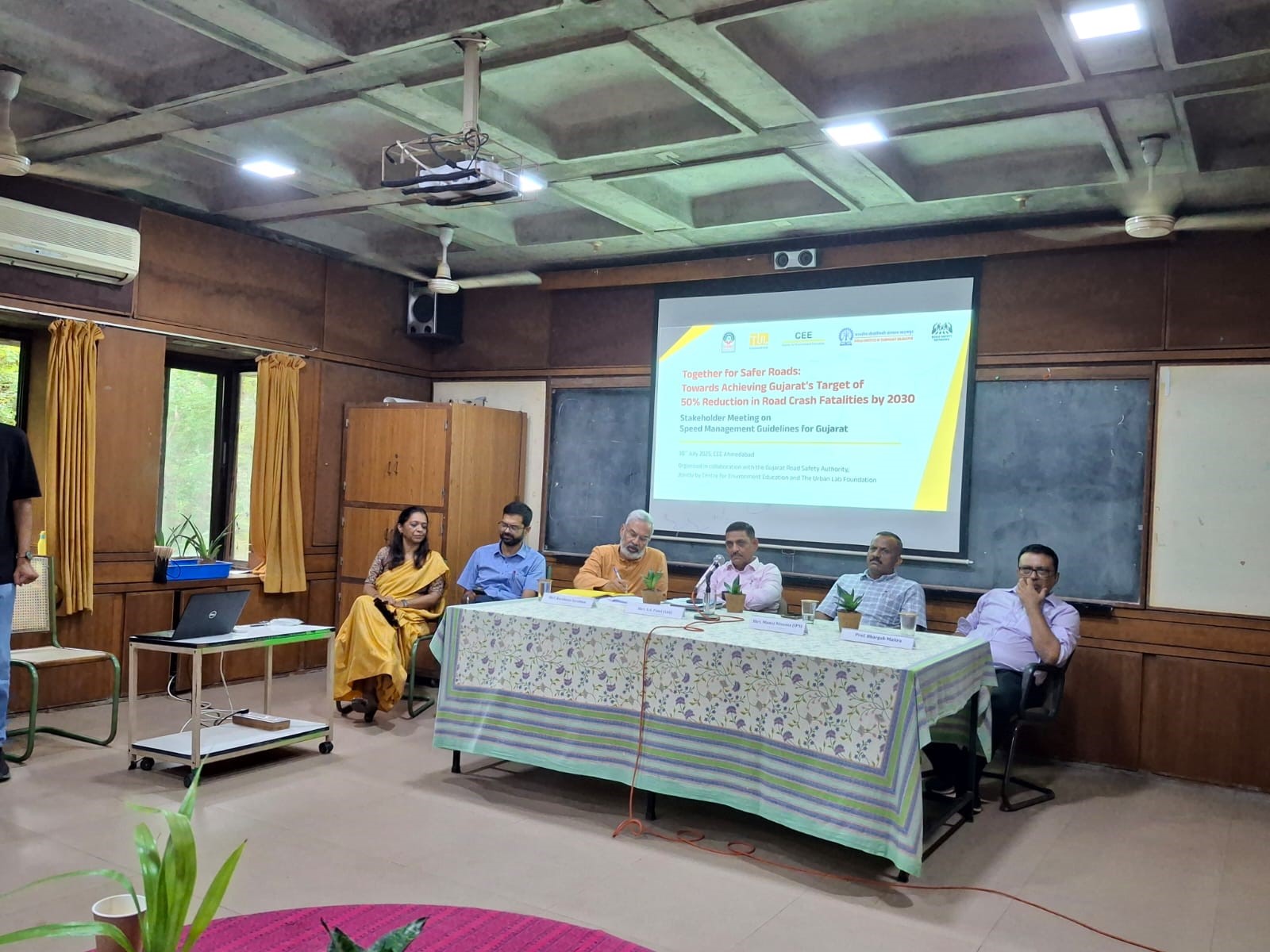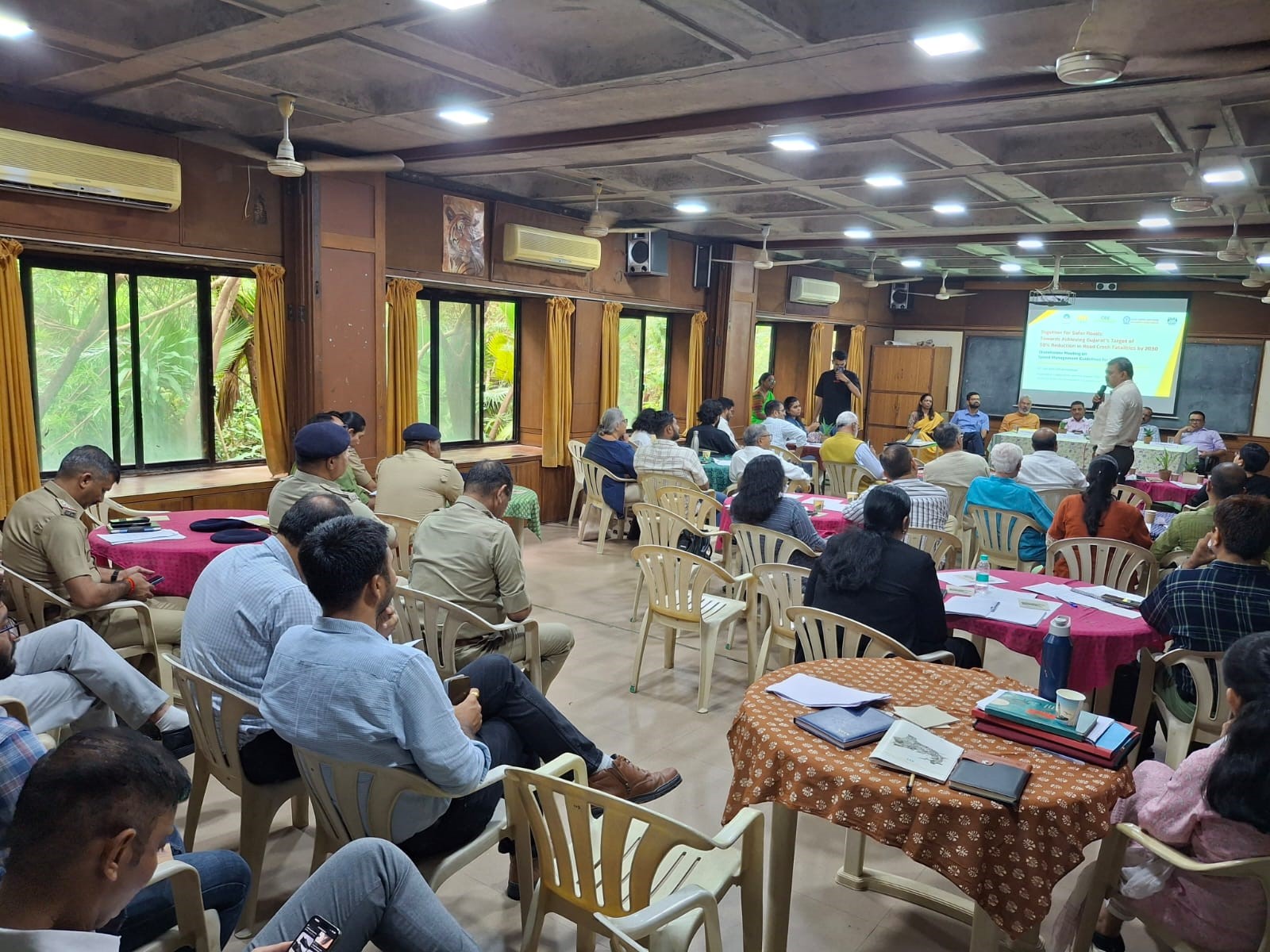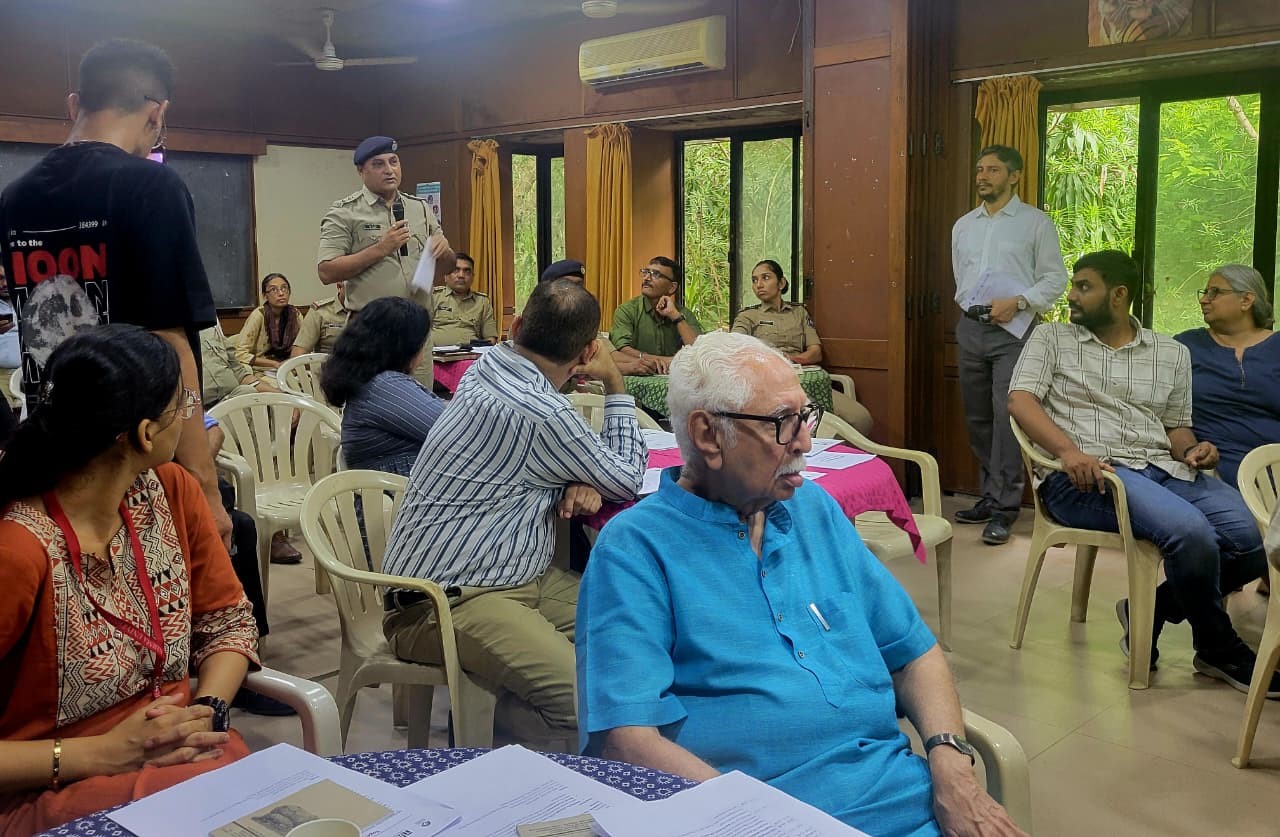Ministry of Environment, Forest and Climate Change
Gujarat to Develop Speed Management Policy Leveraging Expertise from IIT Kharagpur, CEE (a Road Safety Network Partner), and Other Key Stakeholders: Commissioner Satish Patel
Statewide Call to Action: Speeding Behind 65% of Gujarat’s Road Crashes
West Bengal's Experience Presented as Framework for Gujarat’s Road Safety Strategy
Posted On:
31 JUL 2025 4:06PM by PIB Ahmedabad
In a major push to enhance road safety in Gujarat, the Centre for Environment Education (CEE), The Urban Lab Foundation and the Road Safety Network (RSN) hosted a focused Speed Meeting on Speed Management Guidelines, bringing together senior state government officials, enforcement authorities, academia, and civil society at CEE Ahmedabad.

The meeting sought to initiate a multi-stakeholder conversation around adopting scientific speed management practices and guidelines in Gujarat — a key measure to reduce fatal road crashes across the state.
The event witnessed the participation of several high-level officials and experts, including Shri M L Ninama, IPS, Inspector General of Police, State Traffic Branch, Gujarat Police; Shri Satish Patel (Retd. IAS), Commissioner of the Gujarat Road Safety Authority (GujROSA); Shri. Kartikeya Sarabhai, Director Centre for Environment Education and Prof. Bhargab Maitra, Professor, Civil Engineering Department, IIT Kharagpur. Senior representatives from key departments such as Roads & Buildings, Urban Development, NHAI, Health, Education, and Police were also present. In addition, the meeting saw active engagement from academic institutions like IIT Kharagpur and road safety partners including The Urban Lab Foundation (TULF).

As per the MoRTH Road Accidents in India Report 2022, Gujarat recorded 17,419 road crash deaths, with overspeeding accounting for over 65% of these incidents. The state also saw a 14.9% increase in total crashes compared to the previous year, underscoring the urgent need for scientific and state-specific speed management interventions.
Shri Satish Patel, Commissioner of the Gujarat Road Safety Authority (GujROSA), stated that the Authority will spearhead the development of a comprehensive Speed Management Policy for the state, in collaboration with the Centre for Environment Education (CEE), Road Safety Network (RSN).
Shri Kartikeya Sarabhai, Director Centre for Environment Education, “ AmdaVamdA is a program aimed at engaging citizens through education, awareness, and sensitization towards road safety—an essential aspect of urban mobility, which is one of the program's key focus areas. As part of the effort to reduce road crash fatalities, it is important for institutions to take proactive steps to enforce the use of helmets and seat belts among visitors, employees, students, and others on their premises."
Shri M L Ninama, IPS, Inspector General, State Traffic Branch, Gujarat Police, “Speeding remains one of the deadliest contributors to road crashes in Gujarat. Through this initiative, we aim to move beyond reactive enforcement and focus on scientific, data-backed speed management. With the right policies and inter-departmental coordination, we can significantly reduce the loss of lives on our roads.”

Fatalities in road accidents due to speeding have increased significantly in recent times. This kind of brainstorming and sensitization workshop is being conducted for the first time, and we sincerely thank CEE for taking the initiative. Bringing together all stakeholders under one roof to discuss and address this alarming issue is a commendable effort.
- Road safety is not solely the responsibility of vehicle manufacturers; it involves multiple stakeholders, including:
- Automobile companies, Road engineers, Authorities of urban planning and citizen themselves
- The healthcare sector also plays a crucial role and should be actively involved in generating ideas and supporting initiatives aimed at reducing road accident fatalities.
Prof. Bhargab Maitra, Professor, Civil Engineering Department, IIT Kharagpur and Member of Road Safety Network, presented the Speed Management Guidelines developed for West Bengal, which have already informed strategic interventions in that state. Drawing from his experience, he shared actionable insights on how Gujarat can adopt and
- localize similar guidelines to suit its road types, traffic mix, and enforcement capacities.
- “The experience from West Bengal shows that state-specific speed zoning and inter-agency coordination can significantly improve compliance and reduce fatalities. Gujarat has the potential to become a leader in scientific speed management,” said Prof. Bhargab Maitra
The Urban Lab Foundation (TULF) also presented an analysis of current speed patterns and risks across Gujarat, emphasizing infrastructure gaps, signage inconsistencies, and areas with high crash frequency.
The deliberations at the Speed Meeting align closely with GujROSA’s roadmap to reduce road fatalities by 50% by 2030, in line with national commitments under the UN Decade of Action for Road Safety. The authority’s action plan focuses on developing Gujarat-specific Speed Management Guidelines, identifying high-risk corridors for immediate intervention, enhancing enforcement capacity for speed limit compliance, increasing public awareness through localized campaigns, and fostering collaboration with academic and research institutions to ensure technically sound and sustainable solutions.
Following the technical sessions, a media interaction was held where senior officials addressed the press, underlining Gujarat’s commitment to safer roads and the collaborative steps being taken to institutionalize speed management.
(Release ID: 2150700)